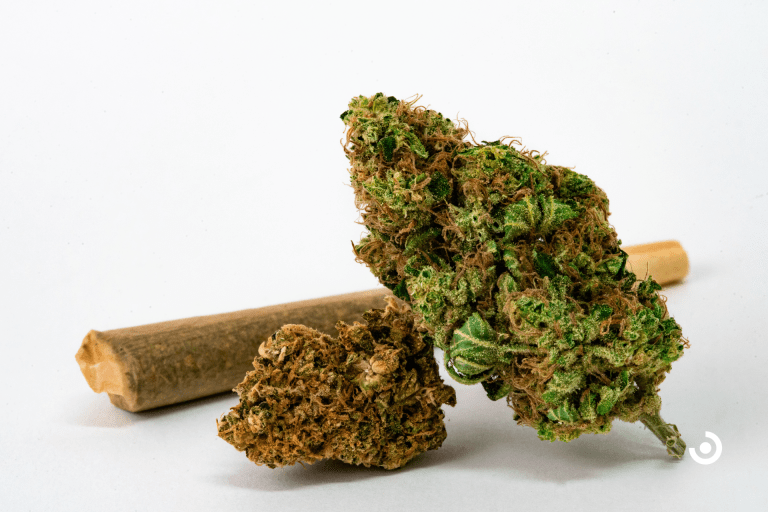Motion Sickness
Cannabis is known to help with nausea, so can it help with motion sickness? What about seasickness? Let’s find out below!
People who get carsick, seasick or airsick are experiencing motion sickness. Motion sickness can result from being carsick, airsick, or seasick and can cause cold sweats, nausea, and vomiting. Motion sickness can affect anyone, but there are significant steps and medications that you can take while traveling to reduce nausea and the risk of getting sick.
What is motion sickness?
Motion sickness can happen to anyone. It occurs when your brain can’t make sense of movement information sent from your body. In a car, airplane, cruise ship, or rollercoaster, excessive motion can make you feel dizzy, clammy, or nauseous to your stomach. Some people may even vomit.
What are the symptoms?
Motion sickness can come on quickly; You may feel fine one minute and experience any of the following symptoms the next:
- Dizziness.
- Irritability.
- Inability to concentrate
- Rapid breathing
- Gulping for air
- Nausea and vomiting
- Pale skin
- Cold sweats
- Headache
- Increased salivation
- Fatigue
What are the causes?
Your brain receives signals from motion-sensing parts of the eyes, inner ears, muscles, and joints. When they send conflicting information, your brain doesn’t understand if it’s stationary or moving, so the confused reaction makes you feel sick.
Several actions can trigger motion sickness, such as:
- Amusement park rides
- virtual reality experiences.
- Reading while in motion.
- Riding in any moving vehicle
- Video games and movies (especially 3D)
Who gets Motion Sickness?
An estimated one in three people gets motion sickness and anyone can get it. Women and children aged two to twelve are most at risk.
These factors make you more at risk for getting motion sickness:
- Family history
- Hormonal birth control
- Inner ear issues
- Menstrual periods
- Migraines
- Parkinson’s disease
- Pregnancy
Risk Factors of Motion Sickness
The most common risk factors for motion sickness include:
- Riding in a moving vehicle
- Age. Between two and twelve
- Women have a higher risk than men
- Sleep deprivation
- Alcohol or drug use
- Cigarette smoke or gasoline odors
- Poor ventilation while riding in a vehicle
- Sitting in the back seat
Treatment Options
You have several options to prevent motion sickness or treat the symptoms. Motion sickness medications include:
- Antihistamines (oral)
- Patches (topical)
Medications can significantly help you to control symptoms. The following medications may help with motion sickness:
- Scopolamine (Transderm Scop). Most commonly prescribed drug for motion sickness. You must take it before symptoms start. It comes in patch form to put behind your ear six to eight hours before travel. If the patch is left in place, the effects last up to three days. Side effects may include dry mouth, drowsiness, blurred vision, and disorientation.
- Promethazine (Phenergan). Administered two hours before travel. The results last six to twelve hours. Side effects include drowsiness and dry mouth.
- Cyclizine (Marezine). Works best when taken at least thirty minutes before travel. It is not recommended for children younger than six, with side effects similar to scopolamine.
- Dimenhydrinate (Dramamine). Take every four to eight hours. Side effects are similar to scopolamine.
- Meclizine (Bonine). Works best when taken one hour before travel. Side effects include drowsiness and dry mouth.
If you travel often, you may want to learn to manage the symptoms. Depending on where you are headed, when you fly with edibles, flowers, concentrate, or CBD oil, it’s vital not to get caught with it in your bag, even if you have a medical card. However, many places will treat that as a prescription, so ensure you have it in a place you can reach easily and quickly.
If you’re going to travel with weed, don’t bring pungent cannabis flowers along for the trip; the smell will be your downfall. Pack some gummies, edibles, CBD oil, or a vape pen in the bottom of a bag, grab some food for sitting in the car, hit the road, stay on course, and stick to the speed limit to avoid a run-in with a law enforcement officer.
As a medical marijuana patient, be sure to have your medical marijuana card with you and know the medical marijuana laws in the states you will be touching.
Can medical marijuana help?
Research into cannabis as an effective treatment for motion sickness is in its early stages, and further research is needed. However, The Journal of Pain published a 2019 study claiming that the severity of headache disorders and migraines was reduced by around 50 percent when individuals participated in medicinal cannabis use.
Another medically reviewed study in Pharmacotherapy found that 40 percent of people who began medical use of cannabis as a migraine treatment experienced a significant decrease in the frequency of migraine attacks. Anecdotal evidence published in a study by Neurology reported that 42 percent of surveyed patients saw a decrease in their migraine headache frequency.
Motion Sickness can cause anxiety. Research has shown CBD to positively affect different forms of anxiety disorders. It has been shown to reduce stress. CBD has beneficial effects on general anxiety disorder and other severe anxiety conditions, including post-traumatic stress disorder, obsessive-compulsive disorder, and social anxiety disorder.
CBD oil is typically helpful in reducing headaches and migraine prevention. THC is a cannabinoid that can sometimes enhance migraine attacks. An exception can be vaping CBD oil because smoking as a consumption method can irritate blood vessels and trigger allergies and sinus issues which can cause a migraine attack.
Medical marijuana is commonly found to possess significant anti-inflammatory and antioxidant properties, which can help with chronic pain management and nausea reasonably quickly. Cannabinoid receptors within a cannabis Sativa plant bind to the brain and peripheral nerve cells and help regulate how you see and feel the pain to reduce symptoms like nausea, vomiting, and severe pain.
Many weed users have expressed that delta-9 THC products have helped improve sleep quality, treat body aches, improve appetite, decrease physical discomfort, etc. Delta 9 is commonly used for its potential medical benefits, reducing symptoms of anxiety and PTSD and helping people combat symptoms of glaucoma, seizures, and other chronic conditions.
Last Updated: June 14, 2024
Get Your Medical Card
Connect with a licensed physician online in minutes
Table of Contents
Keep Reading
-
Discover The Best Indica Strains For Relaxation
Discover the ultimate guide to finding the best Indica strains for relaxation. Unwind and destress with these top picks and find your perfect chill companion today! Click here to start your journey towards pure relaxation.
-
CBG: A Promising Treatment for Anxiety
Are you looking for an alternative treatment for anxiety? Find out how CBG may be the perfect solution.
-
Edibles vs. Smoking – Pros & Cons
Smoking vs. Edibles: Which is better? A look at the pros and cons of each method of consuming cannabis.



